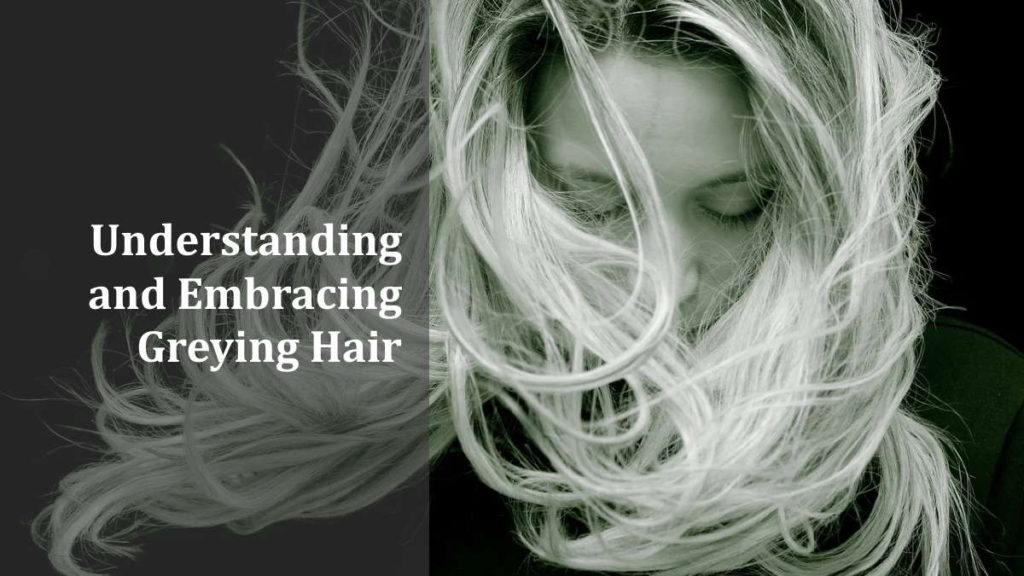Noticing even just one grey hair can be a real nightmare, especially if it appears in your early twenties.
But is there really a reason to get that much frustration about having grey hair?
People who are 50 and above are already more or less comfortable with the idea of having grey hair. However, even at that age, knowing that it’s normal, people seek treatments to deal with and reduce the quantity of grey hair they have.
Hair greying can be seen as a unique kind of phenomenon, and the reason why that transformation happens engages a lot of people.
This article will focus on how the process happens, why hair has a tendency to turn grey or white, what are some of the natural measures that can be taken to prevent and cut down premature hair greying.
How Exactly Hair Turns Grey
Hair turning grey is a sign of aging and is an entirely natural process. In fact, at the age of 50, half of the human population has at least some of their hair turned grey up to 50 percent.
Most people find themselves contemplating at the reasons for their hair turning grey and feel it is a sign of something gone wrong with their body internally.
The reality is that the hair follicle contains a natural hair “dyer” that affects our hair color when it comes out from the scalp.
The particular hair pigment called melanin is responsible for the color of our hair, and when the amount of melanin decreases, the hair starts to lighten its color, turning grey or white.
So, what we need to know is that, as for now, researchers are still studying this process.
They succeeded in finding out how it happens, but the question of whether or not there is a way to slow it down is still unanswered.
Factors Affecting Grey Hair And What Can Be Done To Prevent It
Multiple affecting factors are known to be reasons for hair greying.
Genetics, ethnicity, stress, or lifestyle influence the amount of grey hair a person has.
Out of all of this, genetics is the particular factor that affects the hair greying process the most.
However, other factors like a non-healthy diet, smoking, or stress may also play a huge role in getting grey hair faster.
Even though for this case, the stress factor hasn’t yet been proven scientifically; however, it’s a known fact that smoking can cause early depigmentation in the hair.
If you have no close relatives whose hair turned grey early, but you start to notice a considerable amount of grey hair on your scalp at the age of 20 to 30, stress and your lifestyle habits are the most probable reasons for that.
Having all this in mind, remember that premature greying connected to genetics and ethnicity cannot be influenced in any way, but there are still other external factors, knowledge of which would help you get that unwanted hair color after your forties, and not twenties.
Natural Remedies Known To Be Preventing Grey Hair
Talking of natural remedies, turns out that usage of different oils for hair might actually have a positive outcome.
Though treatments with various natural and essential oils will not prevent grey hair from coming out, moisturizing hair follicles with masks containing oils may change grey hair’s look, making it less noticeable.
Olive oil and coconut oil are both known to be helpful oils in the process of fighting against grey hair.
Another well-acknowledge natural remedy is treatment with juice of Indian Gooseberry and almond oil. Juice of Indian Gooseberry, also known as Amla, contains anti-microbial features and overall is a great source of Vitamin C. It’s considered an excellent coolant for the hair, which in its place helps to reduce the appearance of grey hair.
Besides applying hair oils directly to the hair, some natural remedies are there to do the job internally, meaning you should include those in your diet, instead of applying directly to the hair scalp.
For instance, consumption of ginger, blackstrap molasses, and black sesame seeds enriches the hair follicle, helping to postpone the greying process.
Getting a sufficient amount of vitamins and minerals is another approach people struggling with grey hair should look into.
Vitamins are known to keep the hair healthy and shiny, and more importantly, in this case, they are a way that might delay the appearance of lightened hair.
Moreover, minerals, like copper, zinc, iron, magnesium, and selenium, are all-natural ingredients that are amazing for hair growth and also for repair.
Final Thoughts
Notably, scientists were successful in finding out the exact process of hair transformation from its original color to grey or white.
What is still under research is the finding of medicine or some kind of remedy, which could actually be proven to be working towards this specific issue.
Any nature-originated treatment known nowadays is just a suggestion by professionals, which they declare based on opinions from various research results.
Most of the time, that research shows specific relationships among factors, such as stress or other poor lifestyle habits versus the tendency of hair to go grey, leading them to make conclusions.
After all, there is no need to get stressed when you notice your hair changing its color to a lighter shade, especially if you’re above 40.
In case of premature hair greying, it might cause anxiety and frustration at first, but try your best to embrace your little greyish hair, and don’t forget that sometimes it’s normal, especially if you’ve family history on greying at younger ages.
And in case you lack motivation, search out and see how many superstars and celebrities are absolutely fine with grey hair, and maybe you’ll change your unfavorable attitude towards this natural aging phenomenon called hair greying.


Comments are closed.